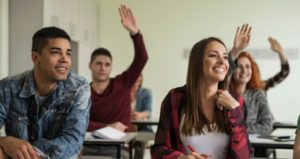To Increase Learner Achievement Serve Feedback Sandwiches
Constructive instructor feedback is essential for a students’ cognitive growth, and it is essential that constructive feedback be presented in a positive and encouraging manner. An appropriate technique, known to the authors as the sandwich approach, encourages learners while providing honest, open and direct critique. Online instructors, in particular, should serve virtual sandwiches to increase motivation and to bolster the achievement of their students. In its most rudimentary sense the virtual sandwich has three layers a top slice, the filling, and the bottom slice.








